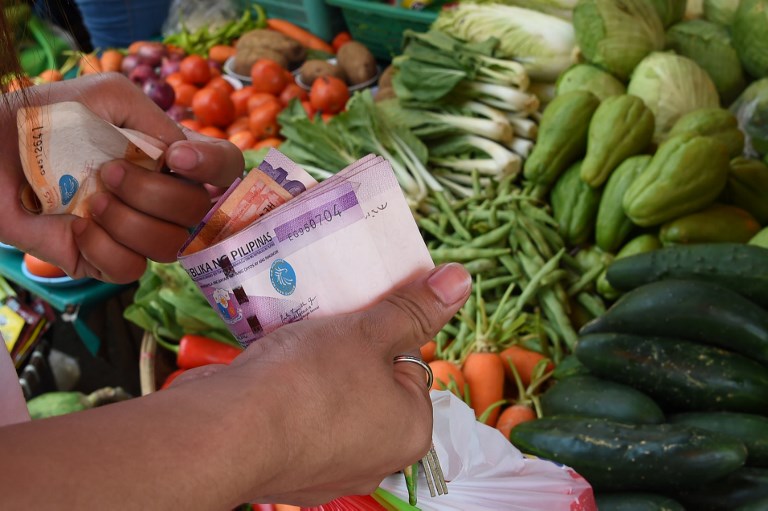
Eleven of the 15 economists polled by the Inquirer last week projected a lower rate of increase in the prices of basic commodities last month compared to June’s 4.1 percent year-on-year. The Philippine Statistics Authority’s July inflation report will be out on Thursday, Aug. 5.
Capital Economics’ Alex Holmes had the lowest forecast of 3.7 percent, while Ateneo de Manila University’s Ser Percival Peña-Reyes and Philippine National Bank’s Alvin Arogo both projected 3.8 percent.
“While we acknowledge increasing prices in transport services (shipping and logistics), fuel and electricity and sin products, we see the easing of meat prices as having a greater impact on the easing of the CPI (consumer price index),” Peña-Reyes said.
Moody’s Analytics’ Steven Cochrane, HSBC Global Research, Rizal Commercial Banking Corp.’s Michael Ricafort, Sun Life Financial’s Patrick Ella and UnionBank’s Carlo Asuncion projected 3.9 percent.
“If there is a risk to higher inflation, it is primarily the possibility that the quarantine orders interfere with transportation of consumer goods, including food, from producer to consumer,” Cochrane said, adding that “inflation may ease further at least through August given that quarantines will be in place through Aug. 20,” referring to the 15-day revert to the most stringent enhanced community quarantine (ECQ) in Metro Manila starting Aug. 6.
Three economists — ANZ’s Sanjay Mathur, ING’s Nicholas Mapa, and Security Bank’s Dan Roces projected headline inflation at 4 percent — the top end of the Bangko Sentral ng Pilipinas’ (BSP) 2-4 percent target range.
Mapa said inflation might “reverse its downtrend in the coming months as a weaker peso, elevated energy costs and a pickup in food prices all combine to threaten the BSP’s inflation forecast of 4 percent.”
BDO Unibank’s Jonathan Ravelas, Pantheon Macroeconomics’ Miguel Chanco, and University of Asia and the Pacific’s Victor Abola said July inflation likely matched the 4.1 percent rate in June.
Abola partly attributed his forecast to an increase in food prices following the heavy rains during recent weeks which flooded parts of Luzon.
Bank of the Philippine Islands’ (BPI) Emilio Neri was the lone economist who projected a higher inflation rate in July at 4.2 percent.
“More than two months after the tariff cuts on pork were implemented, we continue to see elevated pork prices keeping the contribution of food on headline inflation close to 2 percentage points,” Neri said.